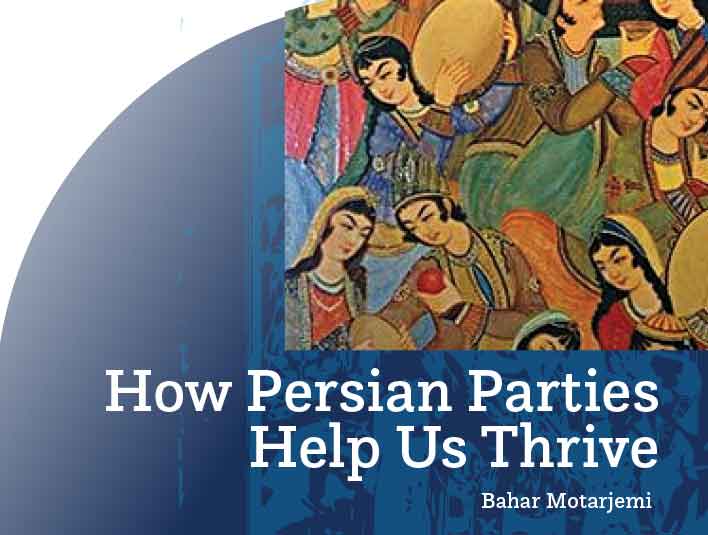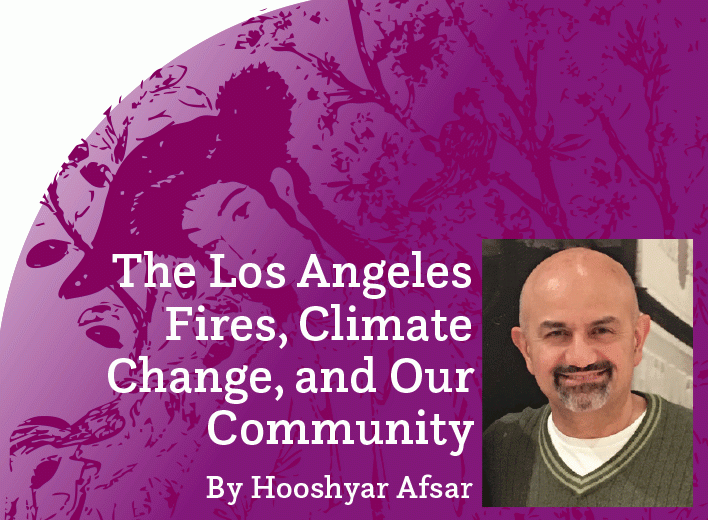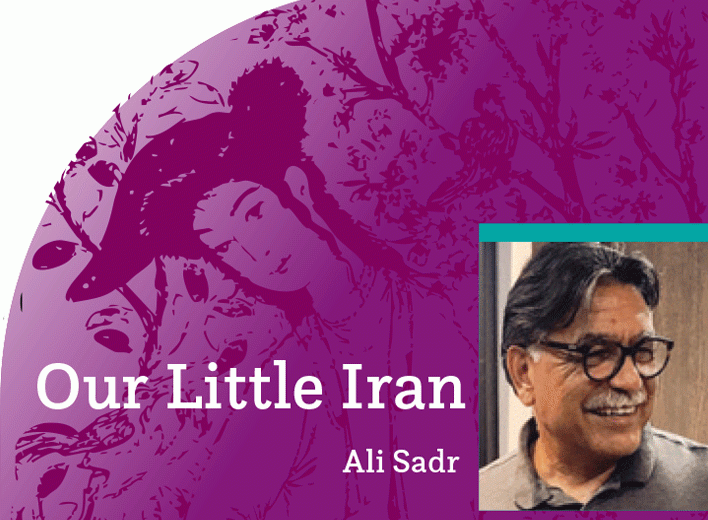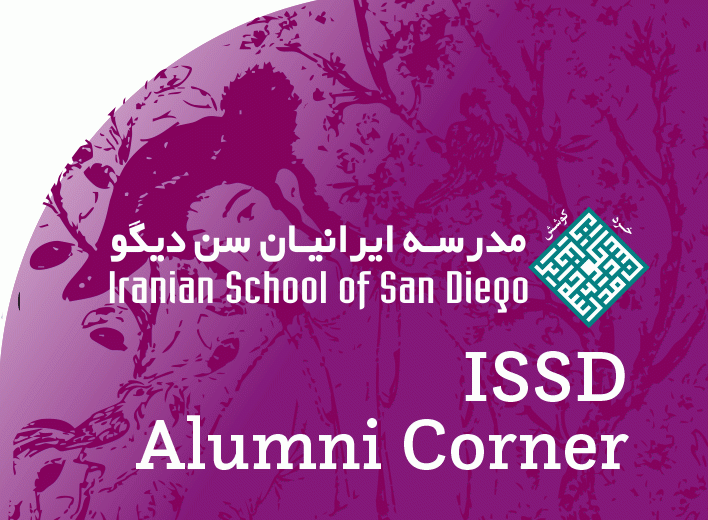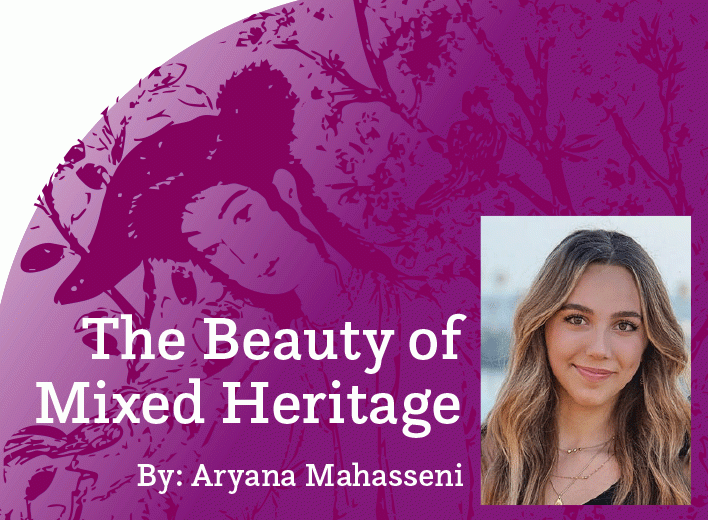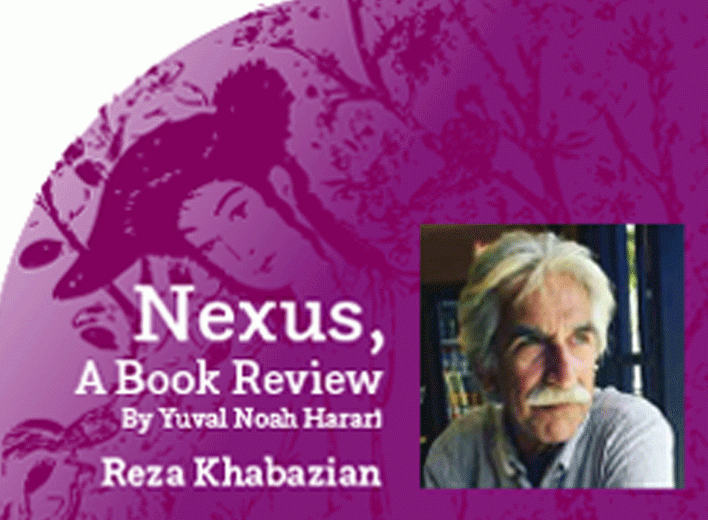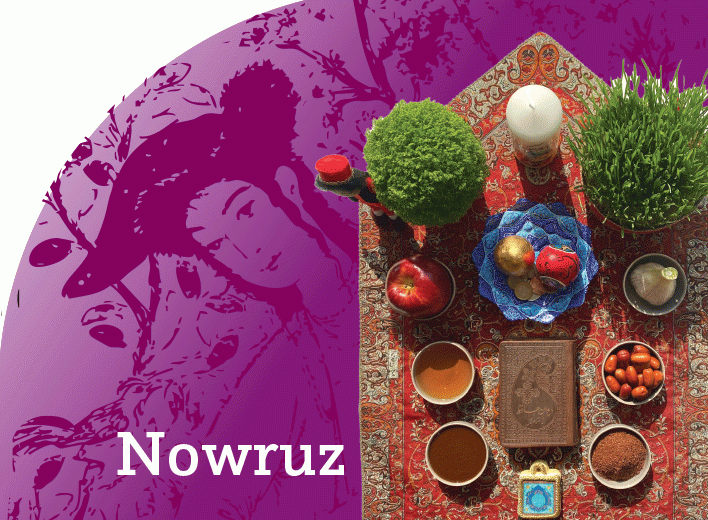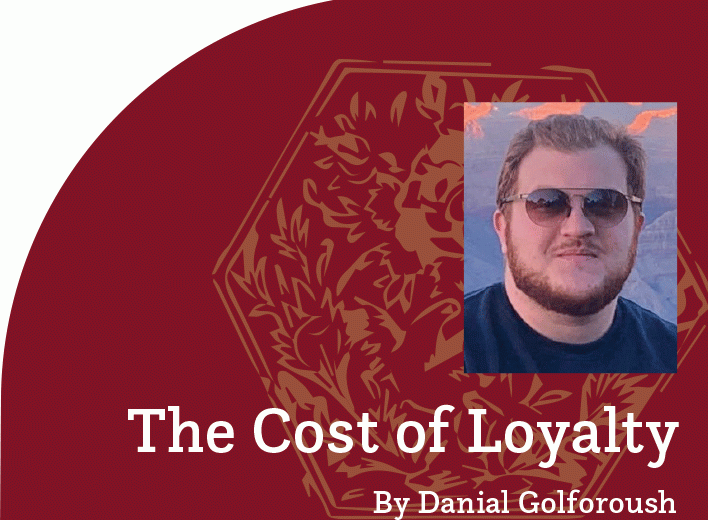How Persian Parties Help Us Thrive
Bahar Motarjemi

One thing that being Persian has taught me is that we can’t succeed in any way if we don’t celebrate what we’ve done. In the relatively short amount of time I’ve been alive, I have been to hundreds of birthdays and Persian parties. In every event, there are some aspects—like the dance floor, the music, the people—that haven’t changed in all my life. I find happiness in these parties, not from materialistic things, but from pride in my culture or someone’s accomplishments. In general, I hold all Persian events very close to my heart because I feel like I am a part of a community, a comforting group of people. Upon closer reflection into every Persian event I’ve gone to, I’ve realized that celebration is a necessary, but often overlooked, part of our lives.
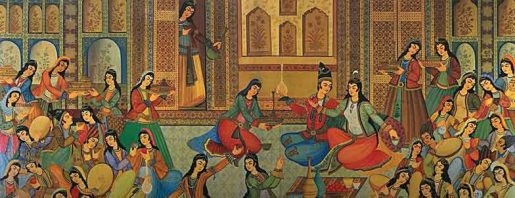
School is an environment where it can be difficult to apply this celebratory outlook. At an early age, I realized that this optimistic point of view was not as prominent in other people’s lives. I believe that in certain contexts, our perspective on school does affect our own performance. Whether we downplay our accomplishments or congratulate ourselves can determine how we face other problems. How we treat a homework assignment can affect how we perform on a test. At first, I felt torn as to what the right mindset was in order to succeed in school, but I ultimately decided to hone more of the values that I had seen present in my upbringing and my relationship with my culture.
I didn’t realize the effects of my attitude until I noticed many, many people at school feeling horribly for themselves for getting a good grade, but not an excellent one. I observed so many of my classmates punish themselves for average performance, confining themselves to their rooms to study and study in an effort to reach their own extremely high standards. I’ve been deemed “lazy” by some of my peers for not going by their standards, but using my own experiences. Being proud of just doing helps, not harms, my future. After a difficult test or challenging day in school, I’ll call my friends or watch a favorite movie, something that does not involve thinking about my grades or school. After rewarding myself, I feel a lot more compelled to do my homework and study in a relaxing, easygoing manner. When I see my friends struggle, I try to remind them they don’t have to be as hard on themselves as they are, that they have worked and accomplished many things already in their academic careers. In times when I say these things, I feel really grateful to have grown up in a community that embraced celebration of achievements as much as it did.
My mom might celebrate more than even I do. I love hearing about what she has succeeded in her day, from as little as finishing paperwork to working in a hospital. My mom has worked hard all her life to be where she is now, but what has made her a better person is her ability to stop and recognize that she has worked hard and that she is deserving. This way of thinking not only applies to her, as she smiles and celebrates every good thing I’ve done. No one has said the words “ I’m so proud of you, we need to celebrate” more than my mom. I didn’t realize this at first, but now I am eternally grateful for every time she has ever said it, and I don’t think I would be the way I am now if it wasn’t for her. Nothing is too little of a success to proudly tell our Persian aunts and uncles, no occasion too small to gather people and share in collective enjoyment. I used to think it was weird how many pictures and stories of me my mom would share with my family, but of course now I realize it affected me in a positive way. My family, like my mom, share this unconditional love for people and feel happy for the success of others. Because of this, I have received endless support for my endeavors in life.
The pandemic was a challenging time for all of us—isolation from our world, our friends, and our families. We relied on our technology to allow us to connect with people, to do our schoolwork, to go to a job, and more. At the height of the pandemic, I was graduating from elementary school, and although it felt amazing, the fact I couldn’t be with my friends made the graduation feel very bittersweet. Even being only 12 years old, I realized just how much of the graduation experience I was missing out on due to the pandemic. A few days later, my friends and I all video called each other on Nowruz. We tried our best to speak positively about our lives, how thankful we were to celebrate Nowruz with our families, how lucky we were for us and our families to be safe. My parents were calling their friends and families; so were practically everyone I knew. Celebrating a Persian holiday during the pandemic was a complicated task, but the way our community approached it with gratitude and overall celebration of the year made all the difference in our lives. My friends and family tried to be as happy as they could, and we started the new year with hope for happiness and prosperity.
My Persian heritage’s own perspective has helped me feel more prepared for any of life’s difficulties. Finding a reason to be happy is a tool that can apply to any situation, and I will definitely use it for the rest of my life. Celebration is deeply rooted in our Persian culture, and it has allowed us to develop deeper and more personal connections with people, as well as guide us through new situations and circumstances when we feel lost.
Bahar Motarjemi is a sophomore at Canyon Crest Academy in San Diego. She is passionate about writing and looks forward to continuing her writing journey in the future.

